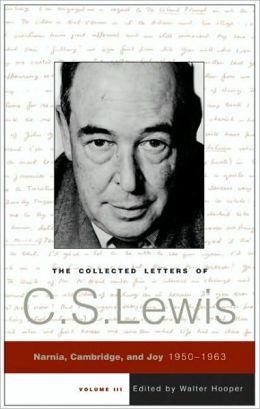
It’s not only C. S. Lewis’s books and essays that provide evidence of how this man’s mind worked. For an even more intimate look at this man, one must read his letters. Perhaps we are tempted to view him as some otherworldly character who always lived in Narnia or on Perelandra. Yet he dealt with the same issues we all do. It’s in his letters that we see how he responded to the daily irritations and problems.
For instance, on November 1, 1954, just a few weeks shy of his 56th birthday, he was coming to grips with what it means to get older. Writing to Mary Willis Shelburne, an American correspondent who was never reticent to share her string of complaints and concerns about life, Lewis let her know that he understood her anxieties. Commenting on a nagging rheumatism that was particularly affecting his left foot and limiting his walking expeditions, he relates that the soreness in that foot kind of speaks to him, “so that after 50 yards, tho’ the right one is fresh as a daisy the left keeps on whimpering, ‘Stop! Stop! We’ve been 25 miles already.'”
It wasn’t just his foot that was bothering him.
The real nuisance is that I am beginning to get horribly fat and this foot comes just when I ought to be slimming by long walks. I have had to give up potatoes, milk, & bread: perhaps having to fast for medical reasons is a just punishment for not having fasted enough on higher grounds!
Besides his physical condition, Lewis also was dealing with his upcoming move from Oxford to Cambridge.

He had resisted that move for some time, not wanting to uproot from his home at the Kilns. Cambridge, though, wanting him so badly, adjusted his schedule to allow for him to continue to live in Oxford and still fulfill the duties of his new appointment. Yet he had some anxieties over the switch, having been so long at Magdalen College. His new college at Cambridge, interestingly enough, was called Magdalene (only a slight spelling change). So the more he thought about this transition in his life, the more he could accept it. He began to see the benefits:
It means rather less work for rather more pay. And I think I shall like Magdalene better than Magdalen. It’s a tiny college . . . and they’re so old fashioned, & pious, & gentle and conservative—unlike this leftist, atheist, cynical, hard-boiled, huge Magdalen. Perhaps from being the fogey and “old woman” here I shall become the enfant terrible there.
It is nice to be still under the care of St. Mary Magdalene: she must by now understand my constitution better than a stranger wd., don’t you think. The allegorical sense of her great action dawned on me the other day. The precious alabaster box wh. one must break over the Holy Feet is one’s heart. Easier said than done.
We all go through these transitions, so it’s nice to have Lewis tell us what it was like for him. I’ve recently turned 69 and found out this week that after 31 years of fulltime university teaching, I am out of a job. Where does a 69-year-old professor find a new position? Who wants to hire someone as expensive as a full professor when younger (and cheaper) scholars are seeking those positions?
Here’s what I know, however: every time I’ve had to experience one of these transitions, the Lord always has provided—and usually in unexpected ways. I have learned that He is faithful. My task is simply to offer my precious alabaster box to Him. I must continue to give Him my heart.
“Easier said than done,” comments Lewis. Yes, but less so now than in previous transitions. Perhaps I’ve learned a few lessons along this spiritual path. I’ll find out if that’s true.
So, this morning, as I write this, I am thankful that a letter C. S. Lewis wrote when I was only three years old can still reach out and offer wisdom these many decades later.
Trust in the Lord with all your heart, and lean not on your own understanding; in all your ways acknowledge Him, and He will make your paths straight.
Proverbs 3:5-6
